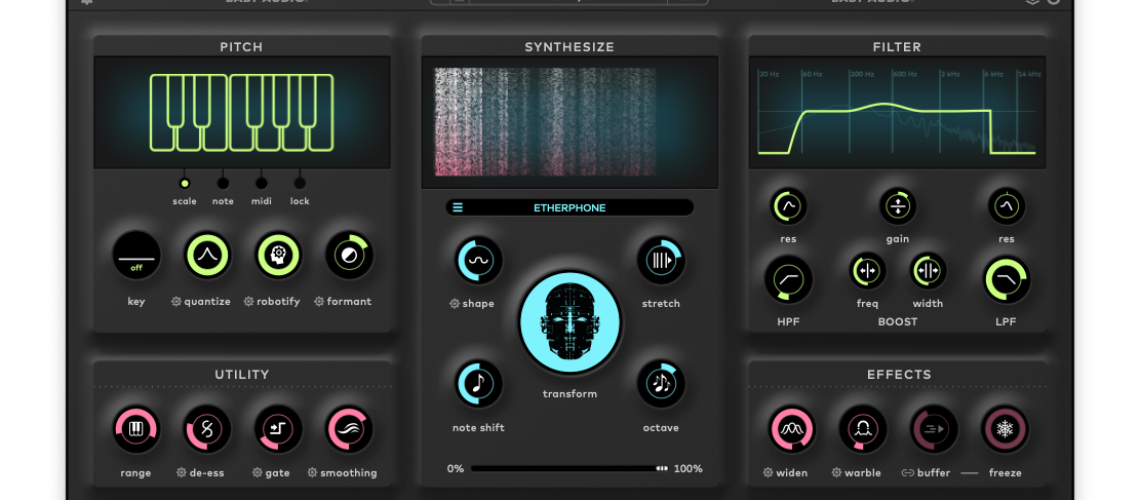More then just a vocoder, Baby Audio’s latest effect packs all the hardcore vocal special effects into one. It’s hard tuning meets phase vocoding meets wavetables.
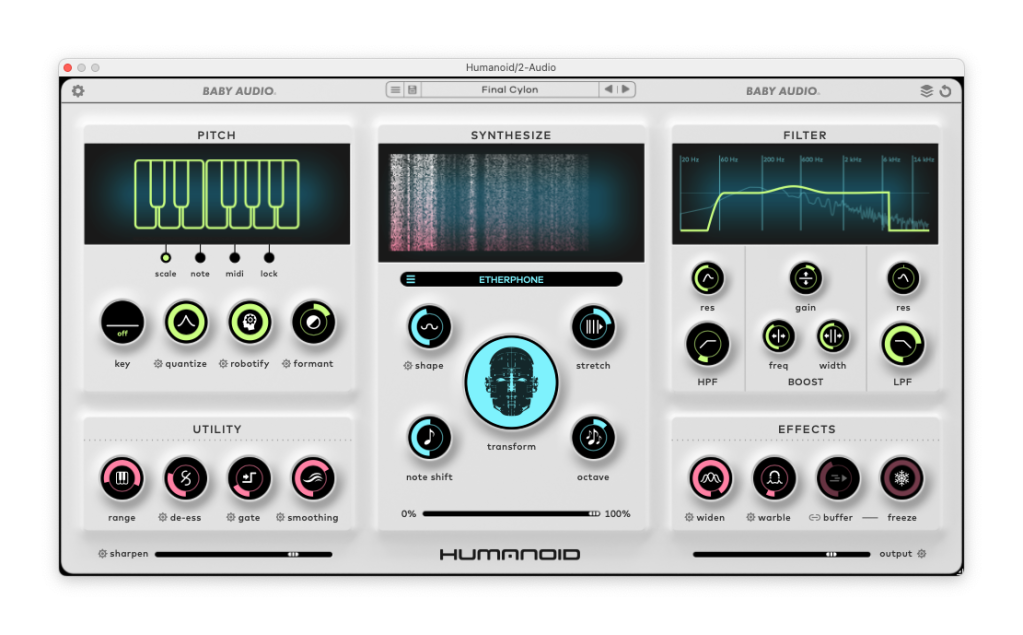
I’m instantly going to adore this one, as it combines a lot of my favorite vocal effects in one instrument. Hard pitch correction was one of the great features of the classic BOSS VT-1 (and various BOSS/Roland effects that came after). The combination of hard tuning, “robotify” effects, and formats lets you quickly transform vocals, genders, pitch, and timbre in fluid ways.
Baby Audio could have made a simple VT-1 clone. (And that could be effective; I even played for a while with a Pd patch I built that was essentially that.) But that’s not what Humanoid is; it takes that essential sound and playable control and goes much deeper. Before getting into that, by way of illustration, here’s me messing around with the interface:
Humanoid is direct and accessible, but has a lot of depth through not only continuous parameter controls, but multiple modules, allowing it to flexibly assume the role of various other effects hardware and software. In fact, you could almost think of this as a synth you play with your voice as much as a vocal effect.
Working left to right across the interface, you have a number of modules / modes:
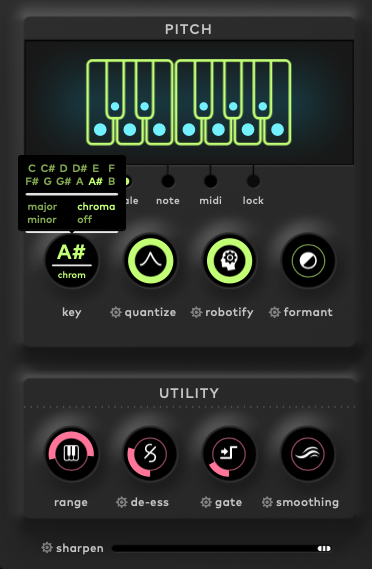
Hard-tuning / MIDI control. Humanoid starts with what Baby Audio describes as “extreme” hard tuning – this is effectively what you get out of a VT-1 or Roland’s current VT effects, or one of my other all-time favorites, Soundtoys’ AlterBoy. You can just leave this in automatic mode, tuning to just a scale/key. There are no particular limitations there, though what would be terrific is support for Scala and/or MPE tuning – the latter would also interoperate with Ableton Live’s tuning options. For now, you’re restricted to 12-TET. (Baby Audio already heard from me on that one!)
The wavetables alone offer a bunch of timbral directions, each beautifully voiced, with a lot of vintage gear (and faux vintage gear, as in Baby’s own BA-1):
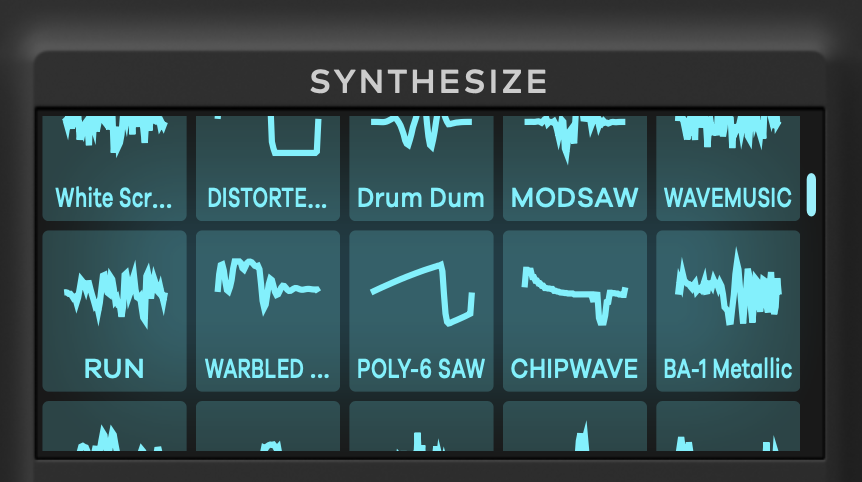
In addition to hard-tuning, you can route in MIDI and play the note you want. There’s also a simple “note” mode, which is useful for drones (both monophonic and duophonic).
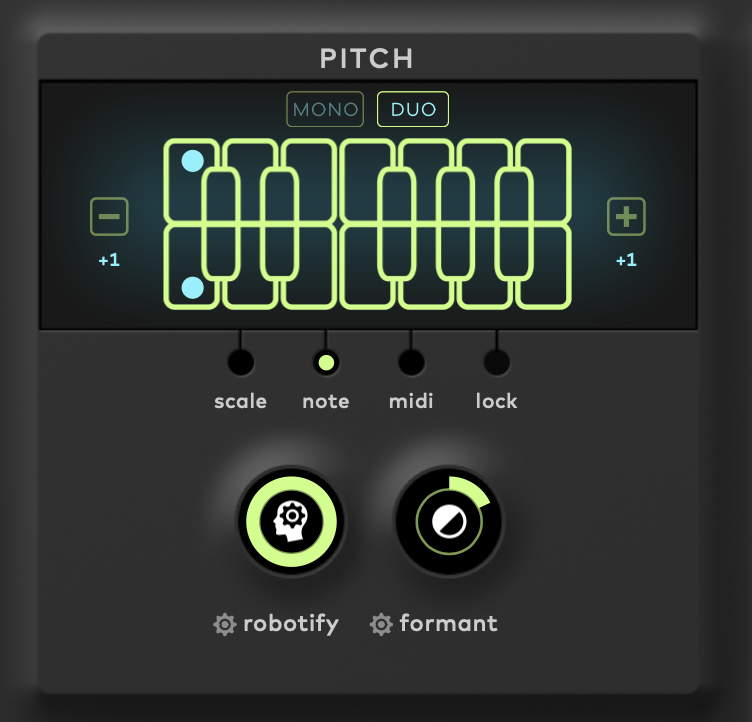
You can dial in what you like, including quantize, robotify, and formant parameters. And back to my “alternative tuning” option, you can leave the mapping off and tune the whole thing with your vocal input – so if you can sing other tunings, you can hear them.
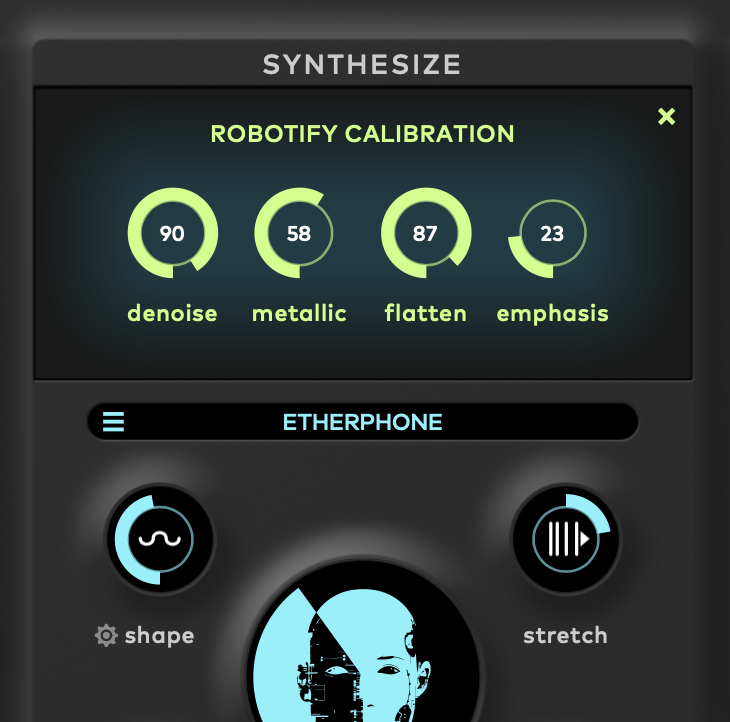
Utility section. Range, de-ess, gate, and smoothing settings also help you adjust settings for the best results, and their inclusion here means you don’t need complex processing chains for each preset you create. Don’t miss the range parameter, either – I did, and wondered why I couldn’t add vocals across the frequency range, though maybe that was just me (duh). They all come with detailed parameter adjustments (click the gear icon), and smoothing adjusts both pitch and spectral results.
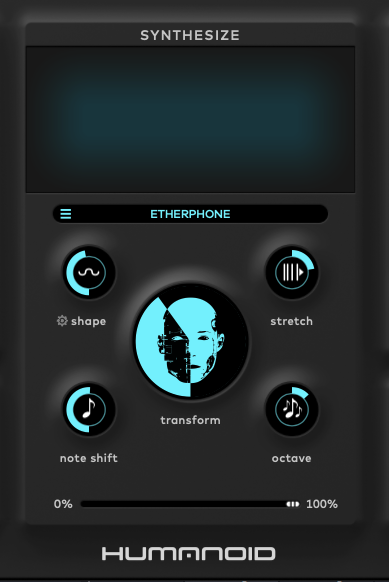
Wavetable “morphing.” Here’s the phase-vocoder part: you can “morph” your voice with a wavetable synth. This part gets really deep, and it’s quickly the aspect of Humanoid that sets it apart – not that it’s the first plug-in to do this, but because the sound is exceptional. You have 64 wavetable presets, all carefully selected, plus the ability to import your own. The transform itself is also continuously variable, and there are options for stretch, shape, note shift, and octave. That combines the best of the octave/pitch doubling options of classic vocal transform gear with a configurable wavetable synth. And just as with other Baby Audio stuff, you can dial in just what you want.
In addition, there are still more modules for tweaking the output to taste:

Filter section. This is carefully executed, too, with a helpful graphical display, including both resonant lowpass and highpass sections, and a sweepable mid-range “boost” with separate Q (width), frequency cutoff, and gain parameters.
Effects section. You get some additional effects baked in here for added impact. Widen is a simple stereo widener. Warble is what Baby Audio describes as “spectral vibrato” – it’s a unique effect, not just a conventional vibrato parameter. Warble comes with both LFO and frequency modulation modes. “Freeze” is what it sounds like, but with the added ability to control the buffer and sync to bpm for rhythmic and stutter effects.
Conclusions
Humanoid is an instant gem for me. I’ll put it up right next to my other favorite vocal tool of the moment, which runs on both iOS and desktop, BLEASS Voices – see my review at the end. The architecture here is totally different, so those two complement each other nicely – Voices is a 4-voice polysynth with a VA approach and its own sound. Humanoid is the ideal wavetable-based approach. Both borrow heavily (and wisely) from the VT-1 lineage.
Also, with all due respect to iZotope, I personally favor these two over Vocal Synth (and some similar offerings from WAVES et al). I always wanted to like Vocal Synth but could never quite get it to sound the way I wanted, which I think is because it doesn’t have the immediacy of the VT-1 and company for processing, and too often you get a harsh, digital sound. Even though it is FFT-based, Humanoid behaves more like hardware, and is tuned in such a way that you get nice spectral results and something that sounds like a synth rather than “some digital processing on the voice.” (Feel free to argue with me on that, if you like.
Humanoid is easy to recommend. Based on watching other users with these sorts of tools, I can tell that right away, you’re likely to get the results you want easily, and play with your voice like a synth.
I can tell that right away, you’re likely to get the results you want easily, and play with your voice like a synth.
Because it really is a synthesizer at heart, you can use Humanoid for lots of creative sound design, not just the conventional “robo-voice” pop stuff. Here, I’ve combined it in a chain with some of my favorite effects for dramatic results. Baby Audio’s own BA-1 FX Strip is a natural pairing; in addition to that, I added Efx FRAGMENTS and Delay ETERNITY from Arturia, plus ShimmerVerb from Eventide:
Now if we just see some tuning/MPE support, it’s perfect. And I do hope this makes an appearance on iOS just like BA-1 did, as that would turn your iPhone or iPad into a mobile effect (as with BLEASS’ offering).
Great stuff. Here’s their own launch video (flashing lights trigger warning):
A free trial is available. VST, VST3, AU, AAX, 64-bit, macOS (Intel/Apple Silicon), Windows.
All of Baby Audio’s excellent tools are on sale right now at Plugin Boutique. That includes Humanoid and has some additional incentives running now.
If you buy something from a CDM link, we may earn a commission.
Plugin Boutique Baby Audio sale
Previously:
